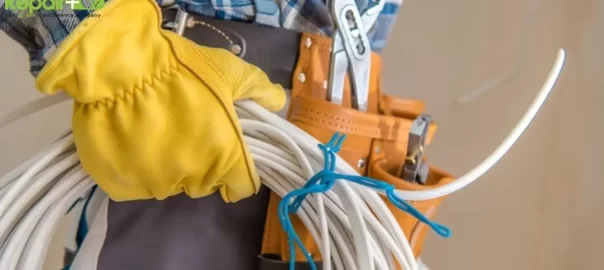New clients save AED 100 on the first hour of all hourly services (including AC, Electrical, Plumbing, Masonry, Carpentry or Handyman jobs).
Book and pay a week in advance and save an additional AED 25 on the first hour!

New clients save AED 100 on the first hour of all hourly services (including AC, Electrical, Plumbing, Masonry, Carpentry or Handyman jobs).
Book and pay a week in advance and save an additional AED 25 on the first hour!


When it comes to our homes and businesses, a functional electrical system is essential for our daily activities. However, electrical issues can arise unexpectedly, disrupting our routines and even posing safety hazards. In this comprehensive guide, we will delve into the most common electrical problems that property owners encounter and provide expert advice on when it’s prudent to call a handyman electrician for assistance. Our aim is to empower you with the knowledge needed to navigate these situations and ensure the safety and functionality of your electrical system.
Flickering lights can be both annoying and concerning. While it might be tempting to dismiss this issue as a minor inconvenience, it can actually signify underlying problems within your electrical circuitry. The common causes of flickering lights include:
Loose Wiring: Over time, wiring connections can become loose due to vibrations, temperature changes, or poor initial installation. These loose connections can lead to intermittent power supply and flickering lights.
Faulty Light Bulbs: Sometimes, the issue might not lie within your electrical system but rather in the light bulbs themselves. Using bulbs with incompatible wattages or poor quality can lead to flickering.
Voltage Fluctuations: Fluctuations in voltage levels can cause lights to flicker. This might be due to issues with the power grid or excessive power consumption within your property.
If you experience persistent flickering lights, it’s crucial to consult a handyman electrician to diagnose the root cause. Attempting to fix these issues without proper knowledge can lead to further complications and safety risks.
A tripped circuit breaker is a common occurrence in households and commercial spaces. Circuit breakers are designed to protect your electrical system from overloads, short circuits, and faults. When a circuit becomes overloaded, the breaker trips to prevent potential fire hazards. Common causes of tripped circuit breakers include:
High-Powered Appliances: Operating multiple high-powered appliances simultaneously can overload a circuit. This is common in kitchens where microwaves, toasters, and ovens are used simultaneously.
Faulty Wiring: Damaged or outdated wiring can lead to short circuits, causing the breaker to trip.
Appliance Malfunctions: Faulty appliances with internal wiring issues can trip the circuit breaker when plugged in.
If your circuit breaker trips frequently, it’s vital to consult a handyman electrician to assess your electrical system’s load capacity and address any potential wiring or appliance issues.
Sudden power outages can bring our daily activities to a grinding halt. While some outages might be due to external factors such as severe weather or utility maintenance, others can be linked to internal electrical problems:
Overloaded Circuits: Overloading circuits with high power demands can lead to circuit breakers tripping and causing an outage.
Faulty Outlets: Damaged or faulty outlets can disrupt the electrical flow and result in power loss.
Old Infrastructure: In older properties, deteriorating wiring and outdated systems can contribute to power outages.
To determine the cause of frequent power outages, it’s recommended to enlist the expertise of a handyman electrician. They can conduct a thorough inspection of your electrical system and provide solutions to prevent future outages.
Experiencing an electric shock is not only unpleasant but also potentially hazardous. Electric shocks can occur due to various reasons:
Exposed Wiring: Wires that are exposed or damaged pose a direct risk of electric shock upon contact.
Faulty Grounding: Improperly grounded electrical systems can cause currents to flow through unintended pathways, increasing the risk of shocks.
Deteriorating Insulation: Insulation that has worn out over time exposes live wires, creating dangerous situations.
If you encounter situations involving electric shocks, it’s imperative to prioritize your safety and reach out to a handyman electrician immediately. They can evaluate the issue, make necessary repairs, and ensure your property’s electrical system is secure.
In many cases, electrical issues go beyond DIY solutions. To ensure the safety, efficiency, and functionality of your electrical system, it’s advisable to call a handyman electrician when you encounter:
In conclusion, a well-maintained electrical system is crucial for the comfort and safety of your home or business. Recognizing common electrical issues and understanding when to seek professional assistance is key to maintaining a functional and secure environment. From flickering lights to power outages and electric shocks, each concern demands prompt attention from a qualified handyman electrician. By prioritizing the health of your electrical system, you’re ensuring the well-being of everyone under your roof.
To book Handyman services in Dubai with Repair Plus Call us at 800-70-247

Please wait while we load .........

